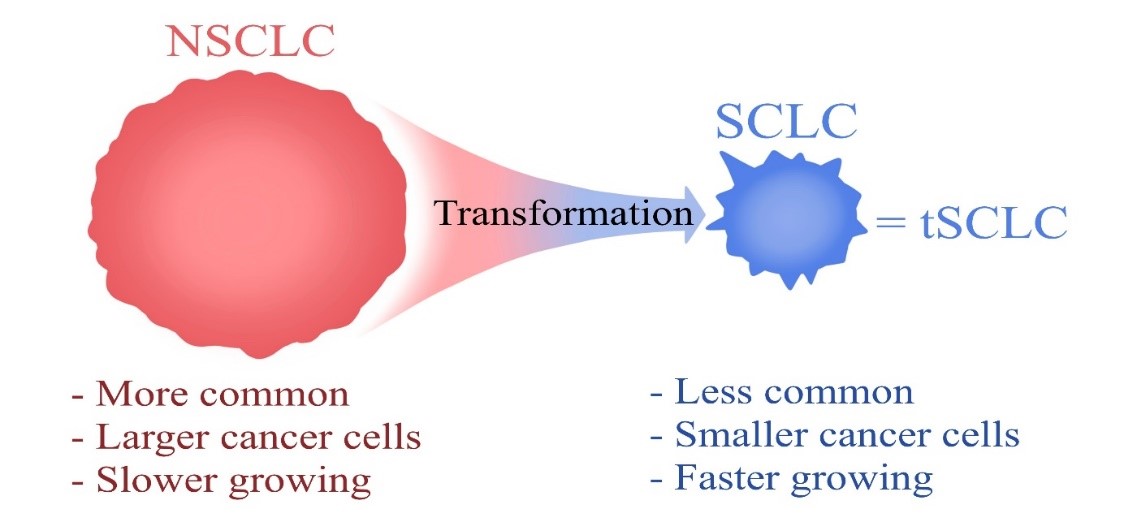Question: My tumor’s original biopsy showed that I had non-small cell lung cancer with an EGFR biomarker. Recently, the cancer started progressing and my most recent biopsy shows that I have transformed small cell lung cancer. What does this mean and how is it treated?
When a certain lung cancer treatment works well at first and then stops working well, it often means the cancer cells have changed or mutated. This is called “drug resistance” because cancer can resist the effects of the treatment drug that is being used and start to grow again. Repeat biopsy and biomarker testing looks for new changes or mutations that can be treated better with a different method or drug.
In rare cases, non-small cell lung cancer (NSCLC) cells can change into small cell lung cancer (SCLC ) cells as they try to resist the drug treatment. This type of change is called transformed small cell lung cancer (tSCLC).
Studies show that tSCLC occurs most often in people whose tumors have a biomarker called EGFR and who are treated with certain drugs. tSCLC is being studied to see why this type of change happens in some people and not others. This data helps researchers learn what causes tSCLC which can lead to more treatment options.

tSCLC may have both NSCLC and SCLC cells as it transforms. For that reason, SCLC treatments or a combination of SCLC and NSCLC treatments may be used to treat both cell types. Treatment decisions are based on your most recent biopsy results and your specific health needs.
For more detailed information on your specific situation and what to discuss with your doctor, please contact GO2’s HelpLine at 1-800-298-2436
In each issue of Your Community, we will be answering your questions about lung cancer and/or GO2 programs and services, questions about screening, treatment types and advancements, clinical trials, support services, and the lung cancer community. Please email your questions to yourcommunity@go2.org.
Please note that the information included in any published answers is for educational pursuit only and is not intended or implied to be a substitute for professional medical advice. The reader should always consult their healthcare provider to determine the appropriateness of the information for their own situation. Nothing from GO2 for Lung Cancer should be construed as an attempt to offer or render a medical opinion.

Leave A Comment